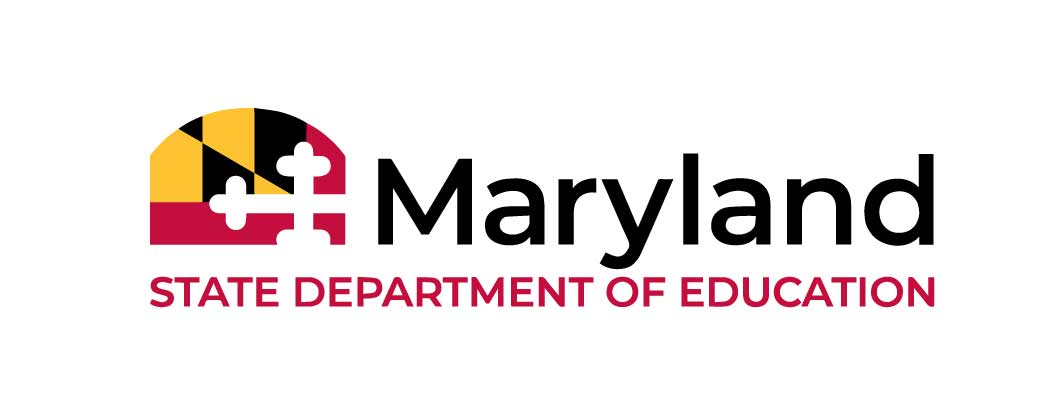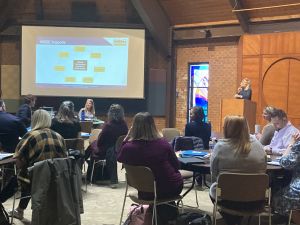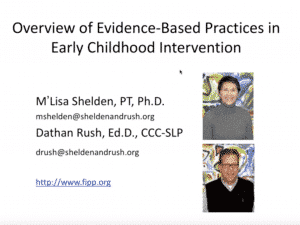Coaching: A Brave New World for PTs and OTs in Early Intervention
The world of early intervention is undergoing a seismic shift. Physical therapists (PTs) and Occupational Therapists (OTs) are rethinking the focus of visits with families and caregivers who have an infant, toddler or preschooler with a developmental delay or disability. Yes, the child is the reason for the visit. However, a large and quickly growing body of evidence demonstrates that supporting parents and caregivers in naturally occurring routines is critical; perhaps even the most important element, in enhancing a child’s development and ability to participate in activities with family and community.
Coaching in early intervention focuses on engaging parents and caregivers while they are interacting with their child in the everyday routines and activities of that family. It requires that the therapist refrain from his or her natural tendency to provide parents with solutions to the challenges they are facing. Rather, the therapist’s role is to help parents identify the challenges and bring their own solutions to light. Employing coaching as a strategy compels parents to reflect on and analyze an issue of the parent’s choosing and then expand their capacity for meeting the needs of their child as the child develops through participation in naturally occurring routines.
This is important stuff. Most therapists chose a career in one of the pediatric therapies in order to work with children. Many do not feel prepared to focus on the adult(s) in a child’s life. Few understand the concepts of adult learning and fewer still feel ready to use coaching in daily practice in early intervention. Yet, therapists are at the front edge of a powerful movement toward more effective early intervention practice. So, how do therapists move into this new frontier?
Learn about the components of coaching and practice them during each visit with a family. The components of coaching are observation, action, reflection, feedback and joint planning (Rush & Shelden, 2011). Each of these components is important and together they make great sense in truly engaging families in supporting their children with disabilities.
Observation: The therapist/coach may observe a parent or caregiver use a skill that is familiar or newly acquired. Conversely, a parent may observe a coach demonstrate a new skill or strategy. These types of observations assist in building parents’ confidence and abilities in ensuring child participation in everyday routines and activities when the coach is not present.
Action: Actions occur during real-life. They include the use of skills, knowledge and strategies that a parent has learned during coaching interactions.
Reflection: Reflection is the heart of coaching. Parents and caregivers are adult learners. Adult learners need to know how new information relates to what they already know. Before a therapist assumes that a parent needs to be told information or shown a therapeutic intervention, it is important to find out what they already know and build on that knowledge. The use of open ended, reflective questions gets the therapist thinking and gets parents thinking. This reflection supports problem solving skills that parents may employ in the future.
Feedback: Feedback is important after an opportunity for reflection. Feedback might include information based on observation, reports from parents about a child’s actions, information to extend knowledge, or the provision of resources.
Joint Planning: The therapist/coach and parent or caregiver agree on the actions. They each will take coaching sessions and prepare for the next visit. A joint plan also sets the stage for the next visit in terms of proposed activities or routines.
Recognize coaching as a powerful new tool in your toolbox. Coaching is one strategy, albeit a powerful, evidence-based one. It can be used with any family and will likely be used in combination with other powerful strategies you already employ. Coaching works well in combination with modeling, teaching and demonstration, providing information and discussing resources. All of these strategies support the parent or caregiver in expanding their capacity while supporting their child’s development.
Leverage the power of parents and caregivers as adult learners. Adults are motivated when what they are learning is immediately useful and relevant to them in their lives. Parents and caregivers are no exception! This is one reason that providing early intervention within the context of family-identified priorities and daily occurring routines is so important and powerful. For example, if a family identifies bath time as a daily challenge, therapists have a highly motivating situation in which to harness the power of parents as agents of change for their child’s development. Within the context of bath time, the therapist can employ coaching to find out what is working or not working well, what has been tried before, what is possible to explore as solutions, how confident a parent feels about his/her role in bath time, expectations for the child’s participation and so on. Imagine the potential for parents to support their child’s development to when the whole family has success in a routine they use every day!
As PTs and OTs in early intervention, it will soon become the expectation that coaching in naturally occurring routines is central to the services you provide for a family. A great resource for therapists beginning their journey is The Early Childhood Coaching Handbook, by Dathan D. Rush, Ed.D., CCC-SLP and M’Lisa L. Shelden, PT., Ph.D.








